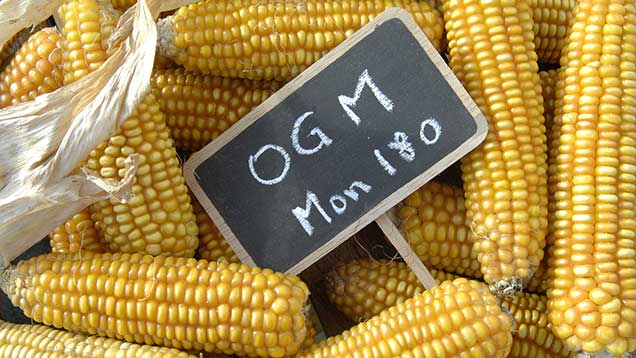GM ban will ‘leave growers at disadvantage’
 ©Sioa Press/Rex Shutterstock
©Sioa Press/Rex Shutterstock Growers in Scotland face being left at a competitive disadvantage following the Scottish government’s decision to ban genetically modified crops, say industry leaders.
The ban was announced by Scotland’s rural affairs minister Richard Lochhead.
Using new EU rules that allow individual countries to prohibit farmers from growing GM crops would protect Scotland’s “clean, green status,” he claimed.
See also: Scotland to ban farmers from growing GM crops
The Scottish government will shortly submit a request that Scotland is excluded from any European consents for the cultivation of GM crops, including the MON 810 GM maize variety already approved and six other GM crops awaiting authorisation.
Making the announcement on Sunday (9 August), Mr Lochhead said: “Scotland is known round the world for our beautiful natural environment – and banning growing genetically modified crops will protect and further enhance our clean, green status.”
He added: “There is no evidence of significant demand for GM products by Scottish consumers and I am concerned that allowing GM crops to be grown in Scotland would damage our clean and green brand, thereby gambling with the future of our £14bn food and drink sector.”
The announcement was welcomed by environmental campaigners. But farm leaders said it would cause problems and extra costs for Scottish growers as they tried to compete against with other countries where GM crops are allowed.
NFU Scotland president Allan Bowie told Farmers Weekly that the union was not surprised by the ban, which delivers an SNP manifesto pledge. But he said he was disappointed that Mr Lochhead hadn’t consulted farmers or the scientific community before making the announcement.
Mr Bowie said: “We are going to have labelling issues, we are going to have cross-border issues – we are going to have a big problem in the future because I think England are going to take it on board. We could be at a competitive disadvantage.”
Scotland’s seed potato sector – worth about £100m annually – could be particularly hard hit. Mr Bowie said: “Our Scottish potato seed industry might not even have a market.
“What if the blight-resistant potato is the answer and we can’t actually take advantage of it as producers?”
Rather than banning GM crops, it would be better to educate consumers about their potential advantages, said Mr Bowie.
GM crops could help growers reduce pesticide and herbicide applications while producing quality crops, he said.
“Biotech is understood in medicine and we are treating people because we have been clever with the science.
“I think genetics within plants has to be clever. This is just one tool, but again we need consumers to understand why it is being done – they understand it with medicine.
“We need to understand that in food it is not a gamble either. It is safe – there is a UK directorate that looks after it and makes sure it is safe – and there is no way that I as a farmer that I would put anything in the soil that wasn’t safe. I would need that total reassurance.”
But Mr Lochhead said there was no appetite among consumers for GM crops. “The Scottish government has long-standing concerns about GM crops – concerns that are shared by other European countries and consumers, and which should not be dismissed lightly,” he said.
Scottish food and drink was valued for its natural, high quality, which often attracted a premium price, said Mr Lochhead. “I have heard directly from food and drink producers in other countries that are ditching GM because of a consumer backlash,” he added.
“That is why I strongly support the continued application of the precautionary principle in relation to GM crops and intend to take full advantage of the flexibility allowed under these new EU rules to ban GM crops from being grown in Scotland.
“I firmly believe GM policy in Scotland should be guided by what’s best for our economy and our own agricultural sector rather than the priorities of others.
“I recently kicked off a national discussion on the future of Scottish agriculture, and welcome views from all sides of the GM debate.”

